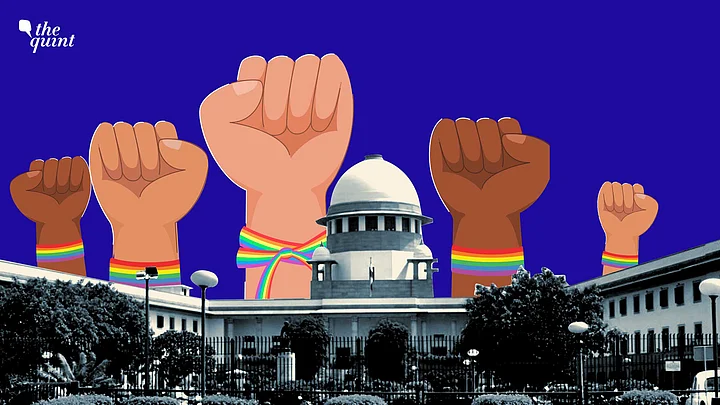In a submission to the Supreme Court on Sunday, 16 April, the central government yet again opposed granting legal sanction to same-sex marriage, terming the petitions "mere urban elitist views for the purpose of social acceptance."
The Centre's statement comes merely two days before a five-judge Constitution bench, led by Chief Justice DY Chandrachud, is scheduled to hear arguments in the same-sex marriage case on Tuesday, 18 April.
Arguing that the court's recognition of the right to same-sex marriage would mean a "virtual judicial rewriting of an entire branch of law," the Centre said that the the "court must refrain from passing such omnibus orders."
'Sacrament In All Branches of Hindu Law...'
The Centre argued that creating or recognising a new social institution like same-sex marriage should be a matter of legislative policy and determined by the appropriate legislature. It further stated that the right to personal autonomy does not include a right to the recognition of same-sex marriage through judicial adjudication.
"Given the fundamental social origin of these laws, any change in order to be legitimate would have to come from the bottom up and through legislation...a change cannot be compelled by judicial fiat and the best judge of the pace of change is the legislature itself."Centre, in its application to the Supreme Court
The government further claimed that recognising same-sex marriage would seriously affect the interests of every citizen, and that granting legal sanction to the "heterogenous institution of marriage alone" was not discrimination against the LGBTQ+ community.
Conventional and universally accepted socio-legal relationships, like marriages, are "deeply rooted in the Indian social context and indeed is considered a sacrament in all branches of Hindu law. Even in Islam, though it is a contract, it is a sacred contract and a valid marriage is only between a biological male and a biological woman," the application read.
'Consider Rural Populations': Centre to SC
Emphasising that it is important to consider the views of rural, semi-rural, and urban populations, as well as religious denominations, personal laws, and customs governing marriage, the Centre said:
"The petitions which merely reflect urban elitist views cannot be compared with the appropriate legislature, which reflects the views and voices of a far wider spectrum and expands across the country."
A five-judge Constitution bench of the Supreme Court, comprising the Chief Justice and Justices SK Kaul, Ravindra Bhat, Hima Kohli, and PS Narasimha, is set to hear a batch of petitions seeking legal recognition for same-sex marriages on Tuesday.
Of them, only the CJI was a part of the five-judge Constitution bench which read down Section 377 of the Indian Penal Code (IPC), thereby decriminalising homosexuality, in 2018.
